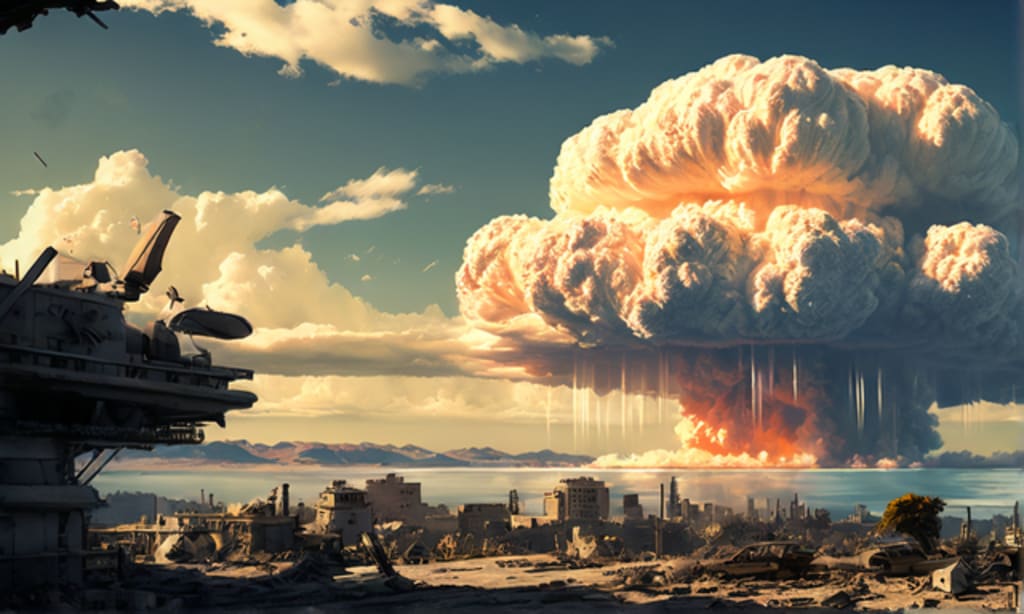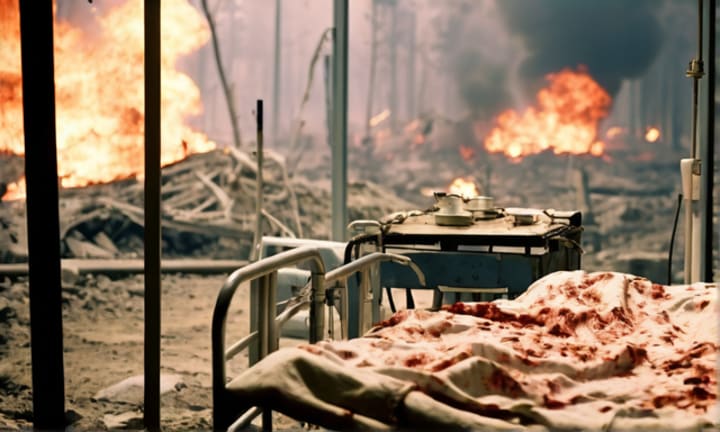
The detonation of an atomic bomb is a catastrophic event that not only causes immediate destruction but also leaves a lasting impact on the health of those exposed. Understanding the effects on the human body in the aftermath of an atomic bomb is crucial for comprehending the severity of such incidents and for developing strategies to mitigate harm. Let us explore the immediate health consequences on the human body following an atomic bomb explosion.
Thermal Effects
One of the primary factors contributing to immediate health issues is the intense heat generated by the atomic explosion. The thermal radiation results in severe burns, causing not only surface injuries but also damage to internal organs. These burns can be life-threatening, with the extent of injury depending on factors such as the distance from the blast and the duration of exposure. Immediate medical attention is crucial to manage pain, prevent infection, and address the fluid imbalance caused by extensive burns.

Blast Injuries
The shockwave produced by an atomic explosion leads to a phenomenon known as blast injuries. The rapid changes in air pressure can cause damage to the lungs, ears, and the vital organs. Pulmonary injuries, including blast lung, are common and can be fatal. The force of the blast can also cause physical trauma, such as fractures and injuries from flying debris, further complicating the immediate health impact.
Radiation Exposure
Perhaps the most insidious and long-lasting health effect of an atomic bomb is radiation exposure. Immediate exposure to ionizing radiation can damage cells and tissues, leading to radiation sickness. Symptoms may include nausea, vomiting, diarrhea, and a weakened immune system. The severity of radiation sickness depends on factors like the proximity to the blast and the duration of exposure. Acute radiation syndrome is a critical condition that requires prompt medical attention, with treatments aimed at mitigating symptoms and preventing further damage.

Psychological Trauma
Beyond the physical injuries, the immediate aftermath of an atomic bomb also induces significant psychological trauma. The sheer magnitude of destruction, loss of life, and the threat of ongoing danger can result in acute stress reactions, anxiety disorders, and post-traumatic stress disorder (PTSD). Addressing the mental health impact is crucial for the overall well-being of survivors, requiring a comprehensive approach that includes counseling, support groups, and mental health services.
Respiratory Issues
In addition to blast injuries, the release of toxic substances and the destruction of buildings can lead to the release of hazardous particles into the air. Inhalation of these particles can result in respiratory issues, exacerbating the challenges faced by survivors. Respiratory problems may include acute respiratory distress syndrome (ARDS), pneumonia, and other pulmonary complications that can significantly affect both short-term and long-term health outcomes.

Displacement and Lack of Resources
The immediate aftermath of an atomic bomb not only causes physical harm but also disrupts entire communities. The destruction of infrastructure, including hospitals and emergency services, makes it challenging to provide immediate medical assistance. Displacement, loss of shelter, and scarcity of resources further compound the health impact, creating a humanitarian crisis. Addressing the immediate needs of survivors, including access to clean water, food, and medical care, is essential for preventing further health complications.
The immediate health effects on the human body following an atomic bomb are multifaceted and devastating. From thermal burns and blast injuries to radiation exposure and psychological trauma, the toll on both the physical and mental well-being of survivors is immense. Recognizing the immediate health challenges is a crucial step in developing emergency response plans, enhancing preparedness, and investing in preventive measures to reduce the catastrophic impact of nuclear events. Ultimately, fostering international cooperation to prevent the use of atomic weapons and promote disarmament remains essential in ensuring a safer and healthier future for humanity.






Comments
There are no comments for this story
Be the first to respond and start the conversation.